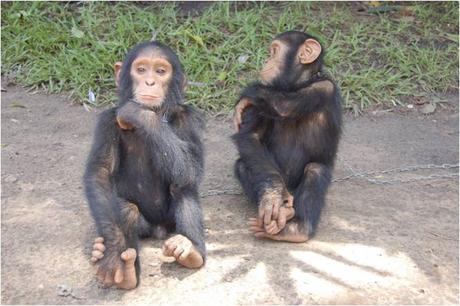I’ve been thinking about thinking quite a bit. My lifelong fascination with religion is part of this, of course. So when someone pointed out Bridget Alex’s article “The Human Brain Evolved to Believe in Gods” in Discover, I had to ponder it. The idea, here supported by science, is that people evolved survival traits that lent themselves to religious belief. That religious thinking was a byproduct that eventually took on a life of its own. Evolution works by giving a reproductive advantage to one trait over another—which is how we get so many types of dogs (and maybe gods)—and those that disposed people to be religious did just that. Elaborate religions evolved from these basic traits. Alex suggest there are three: seeing patterns, inferring intention, and learning by imitation.
While there’s a lot of sense here, the reductionism doesn’t ring true. The need to explain away religion also seems uniquely human. Ironically, the idea that we are somehow special compared to other animals derives from a biblical worldview from which science has difficulty divorcing itself. One of the greatest ironies of the science versus religion debate is that scientific thinking (in the west) developed within a worldview formed by Christianity. Many of the implications of that development linger, such as the supposition that animals can’t have consciousness, or “souls.” We watch a chimpanzee in an experiment and deduct points when they don’t do things the way a human would. We thus confirm the biblical view in the name of science and go home happy.

I have no doubt that people evolved to be religious. There are certainly survival benefits to it, not least group building and shared purpose. I do wonder that science doesn’t address the elephant in the room—that we have limited receptors for perceiving specific stimuli, such as light and sound, but that there are other phenomena we don’t perceive. We build instruments to measure things like x-rays and neutrinos and magnetism, but we don’t sense them directly. How can we possibly know what we might be missing? I suspect the real problem is we don’t want to admit willfulness into any other part of the universe. Humans alone possess it. Some scientists even argue that our own sense of will is an illusion. It’s not difficult to believe that we evolved to be religious. It’s also not difficult to believe that we pick up hints of forces that have yet to be named. An open mind, it seems, might lead to great rewards.
